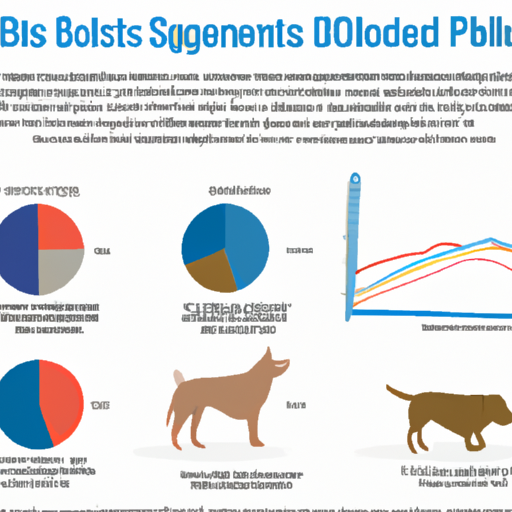Understanding the Bloat
Bloat, scientifically known as Gastric Dilatation-Volvulus (GDV), is a serious condition that can affect your beloved four-legged companions. It involves the stomach filling with gas and sometimes twisting, leading to a multitude of health complications. Now, as a caregiver, you might be wondering, “how common is bloat in dogs?” To help you understand, let’s delve deeper into this critical topic.
The Prevalence of Bloat in Dogs
In the grand scheme of things, bloat is not particularly common – it affects only about 1% of dogs. However, certain breeds are at a higher risk. Large, deep-chested breeds such as Great Danes, Saint Bernards, and Weimaraners are more prone to bloat. In fact, a study shows that a Great Dane’s lifetime risk of developing bloat can be as high as 42%.
| Breed | Risk |
|---|---|
| Great Dane | 42% |
| Saint Bernard | 23% |
| Weimaraner | 20% |
Recognizing the Signs of Bloat
As a caregiver, it’s essential that you can recognize the signs of bloat. Symptoms include:
- Excessive drooling
- Restlessness
- Swollen abdomen
- Attempts to vomit, but without producing anything
The quicker you can spot these signs, the faster you can get your dear friend the help they need.
Prevention and Treatment of Bloat
While there’s no surefire way to prevent bloat, there are some steps you can take to reduce the risk:
- Feed your dog smaller meals more frequently
- Avoid vigorous exercise after meals
- Keep a close eye on breeds that are at a higher risk
Treatment for bloat usually involves stabilizing the dog and deflating the stomach, often requiring surgery.
How to Respond in Case of Bloat
First and foremost, don’t panic. Your dog needs you to stay calm. If you notice the signs of bloat, it’s crucial to get your dog to a vet immediately. Bloat can become fatal within hours, so every second counts. Your vet will be able to provide the necessary treatment to save your dog’s life.
FAQs
Q: Can small breeds get bloat?
A: While less common, small breeds can indeed get bloat.
Q: How quickly does bloat develop?
A: Bloat can develop within hours, making it crucial to act quickly if you notice symptoms.
Q: Can bloat resolve on its own?
A: No, bloat is a serious condition that requires immediate veterinary care.
Being a caregiver to a dog is not just a responsibility but a privilege. By understanding conditions like bloat, you’re doing your part to ensure your dog lives a happy, healthy life.



